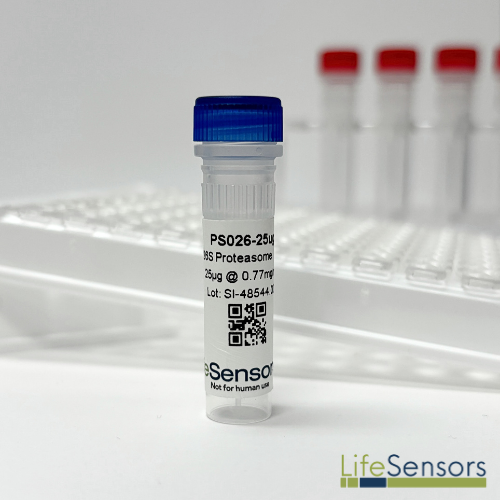
$274.00 – $454.00Price range: $274.00 through $454.00
| Species | Human |
| Source | Human |
| Tag | None |
| Molecular Weight | N/A |
| Quantity | 25µg, 50µg |
| Concentration | 0.5 mg/mL |
| Formulation | 20 mM Tris-HCl pH 7.2, 10% Glycerol, 150 mM KCl, 1 mM β–mercaptoethanol |
| Storage | -80°C, avoid freeze/thaw cycles |
Domestic Delivery
All orders placed within The United States are subject to a flat shipping fee of $80. Orders are shipped via FedEx Express Standard Overnight.
International Shipping to Canada
All orders placed within Canada are subject to a flat shipping rate of $185. Orders are shipped via FedEx Express International Priority. Shipments to Canada will only be sent from our facility on Monday, Tuesday, and Wednesday to allow for adequate delivery time.
International Worldwide
All orders to be delivered to Europe, Asia, Australia and South America are subject to a flat shipping fee of $325. Orders are shipped via FedEx Express International Priority.
Customers can also use their own shipping account for deliveries if preferred. Please include the Fedex or DHL shipping account number when the order is placed or reach out to customerservice@lifesensors.com for more information.
271 Great Valley Parkway Malvern, PA 19355